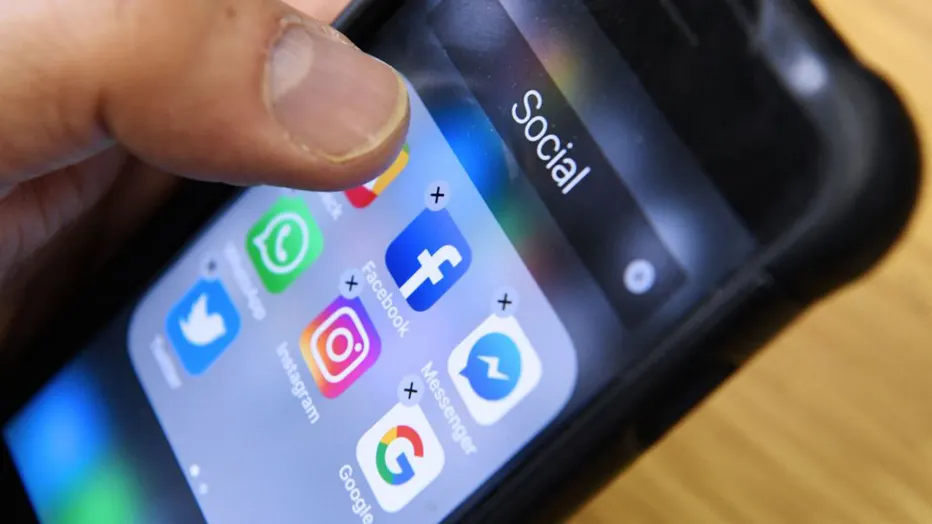Does social media need warning labels? Experts weigh in
Does social media need a warning label? - STREET SOLDIERS
Officials are considering adding a warning label, like the ones you find on cigarette packs to social media. But will it be enough to ward off people? FOX 5 NY's Lisa Evers takes a closer look.
All kinds of warning labels have become a part of our daily life, especially those designed to protect children.
We see them on liquor bottles and some energy drinks.
They're on cigarette packs, dry cleaner bags, over-the-counter medications, plastic wrappings, and even shows on streaming platforms. Now the Surgeon General has suggested it may be time to put warning labels on social media.
As awareness grows about rising mental health issues facing young people, U.S. Surgeon General Vivek Murthy says social media is "an important contributor."
In a New York Times Op-Ed piece, Dr. Vivek Murthy wrote, "A surgeon general's warning label, which requires congressional action, would regularly remind parents and adolescents that social media has not been proved safe."
His opinion may be based on science. Social media addiction can affect us in ways similar to opioids, alcohol or even chocolate, says psychiatrist and public health specialist Dr. Yalda Safai. She warns that the instant gratification of likes, shares, and comments makes users want more and more overtime.
Psychiatrist and public health specialist Dr. Yalda Safai says, "Because of that instant gratification, we get a little spike in our brain of a substance called dopamine. Dopamine is a feel good hormone.
Dopamine is secreted when we have a nice piece of chocolate.
Social media warning labels
The U.S. surgeon general has called on Congress to require warning labels on social media platforms and their effects on young people’s lives, similar to those now mandatory on cigarette boxes. FOX 5 NY's Sharon Crowley has a closer look at the impact this could have.
Dopamine is also secreted when someone uses opioids or alcohol, or more addictive substances. It's the same with social media.
The neurobiology of social media addiction is the same exact pathway or neurobiology that it is for opioid addiction."
Documents leaked by whistleblowers at social media companies showed how extensively and invasively they were tracking children's usage, says attorney Robert King.
He represents families who claim their children have suffered adverse effects, like cutting, anorexia, and injuries from stunts or challenges. He believes a warning label from the U.S. Surgeon General - similar to what's on a cigarette package - is an important first step.

A man holds a smartphone with the icons for the social networking apps. (KIRILL KUDRYAVTSEV/AFP via Getty Images)
Attorney Robert King is the founder of King Law. He says, "As you dig in, and documents are produced to attorneys general around the United States as were in our lawsuit, you just see more and more how complex the business systems were created to target children."
Warnings by officials about social media dangers are increasing.
New York Governor Kathy Hochul recently signed a bill into law requiring social media companies to restrict addictive feeds to users under the age of 18.
Mayor Eric Adams and Schools Chancellor David Banks are working to ban smartphones in New York City public schools. Other cities and states have already implemented similar policies. A warning from the Surgeon General would be important, says Jessica Elefante of Mothers Against Social Media Addiction.
Jessica Elefante is Co-Chapter Leader of the Brooklyn chapter of Mothers Against Social Media Addiction. She tells us, "I think it's been a long time coming, and I'm thrilled. It is not a cure-all, it is a first step. I want it on smartphones, I want it on any sort of platform that uses an algorithm, even a video game. What it really is - is a huge step in the right direction to show parents that it's unsafe."
There are few long term studies on the impact of social media misuse on the mental health of children and teens, but there are many surveys and reports confirming a worsening impact.
To learn more about social media lawsuits and Robert King, click here.
For more on this topic, be sure to watch the next episode of Street Soldiers, Friday at 10:30 p.m. after the news.

